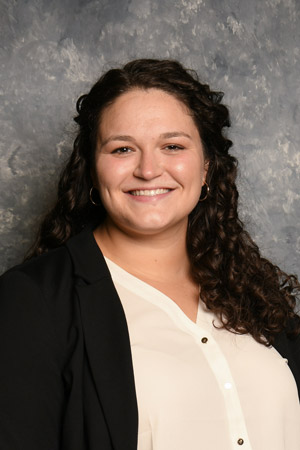BU MET Experience Inspires CJ Award Winner to Go for Law Degree
 Bridget Bishop (MET’22)
Bridget Bishop (MET’22)Law Student, University of Wisconsin-Madison Law School
MS, Criminal Justice, concentration in Strategic Management
What do you find most fascinating about the discipline of criminal justice? Do you have a particular focus within the broader field?
Criminal justice is an expansive and nuanced field that is constantly evolving. It is an important field that, like many others, confronts complex challenges that need complex answers. The opportunity to be a part of finding answers to challenges that impact individuals in society is what drew me to criminal justice. Within the field, I have a strong interest in policy and its implementation in the United States. I have always been drawn to understanding the big picture and figuring out how to address problems from the macro level.
Did you always intend on going back to school, or did the need arise at a particular moment?
For me, the MS in Criminal Justice program was an opportunity that arose from the COVID-19 pandemic. While I had intended to attend law school, it wasn’t something I wanted to begin while in-person communication was still limited. I received my undergraduate degree from Boston University in business administration, and was looking for more experience in law and policy. MET’s MS in Criminal Justice was the perfect one-year opportunity to expand my knowledge about a field that interested me. Also, its pre-existing online plus in-person curriculum allowed for a great learning environment while the community was still evolving its COVID-19 response.
Congratulations on your high achievement in the Master of Science in Criminal Justice (MSCJ) program and your Award for Excellence in your studies! Looking back, what do you consider to be the main ingredients of your success?
The most important contributors to my success were the professors in the master’s program. There were so many incredible individuals there to work with you on understanding the criminal justice industry in theory and practice. Three professors that truly left an impact on me were Shea Cronin, Mary Ellen Mastrorilli, and James Matesanz. I was privileged to work with Dr. Cronin on multiple research projects, one of which analyzed state-level gun theft data to understand the implications of gun theft on violent crimes. He was a great professor to work with, who allowed me to experience the criminal justice industry hands-on. I had Dr. Mastrorilli as a professor for both program semesters and I never wanted to miss her class. She had so much firsthand knowledge of the CJ system to share, along with sage advice on how to be an impactful criminal justice professional. Professor Matesanz was an outstanding lecturer who truly believed in the humanity and individuality of all incarcerated individuals. He showed the importance of care and compassion in a field where these feelings can be hard to find.
These professors kept me engaged in learning and showed me firsthand how to have an impact. The drive their dedication inspired was one of the most important ingredients to my success.
How were you able to successfully balance your studies with your commitments outside the classroom?
While I completed my master’s, I also held a graduate assistantship with Prof. Cronin and competed as a varsity athlete for Boston University on the track and field team. So to say I was busy was an understatement. However, one of the best aspects of the master’s program was its flexibility. When necessary, I was able to complete courses online even though I was an in-person student. This allowed me to travel to athletic competitions without missing class sessions, as well as to collaborate with classmates in a variety of ways. While balancing all my activities took time management and focus, it was worth it for the opportunities I was given.
How do you plan to apply the skills and competencies you gained during your studies moving forward? What is next in store for you?
This fall I will be starting law school at the University of Wisconsin-Madison. The MSCJ program opened my eyes to a field that previously I understood only superficially. While I am not sure what kind of law specifically I will be practicing, my coursework throughout this program has shown me there are so many opportunities to make a mark on policy and practice in the criminal justice system and beyond.
You were recognized by faculty and peers for your hard work and dedication to the MSCJ program. What “words of advice” or encouragement have served as a guiding principle, or simply inspiration, for you?
In the CJ program, we talk a lot about “wicked problems.” Problems that are so complex and interrelated that they can be hard to solve completely. Since the first day we talked about “wicked problems,” I was intrigued. For me, the idea of an “unsolvable problem” inspired me to try and make these wicked problems as solvable as possible. So to sum it up into “words of advice,” I would say that nothing is too complex or too challenging to take on. One big problem can sometimes be broken down into smaller, more manageable components to try and solve.